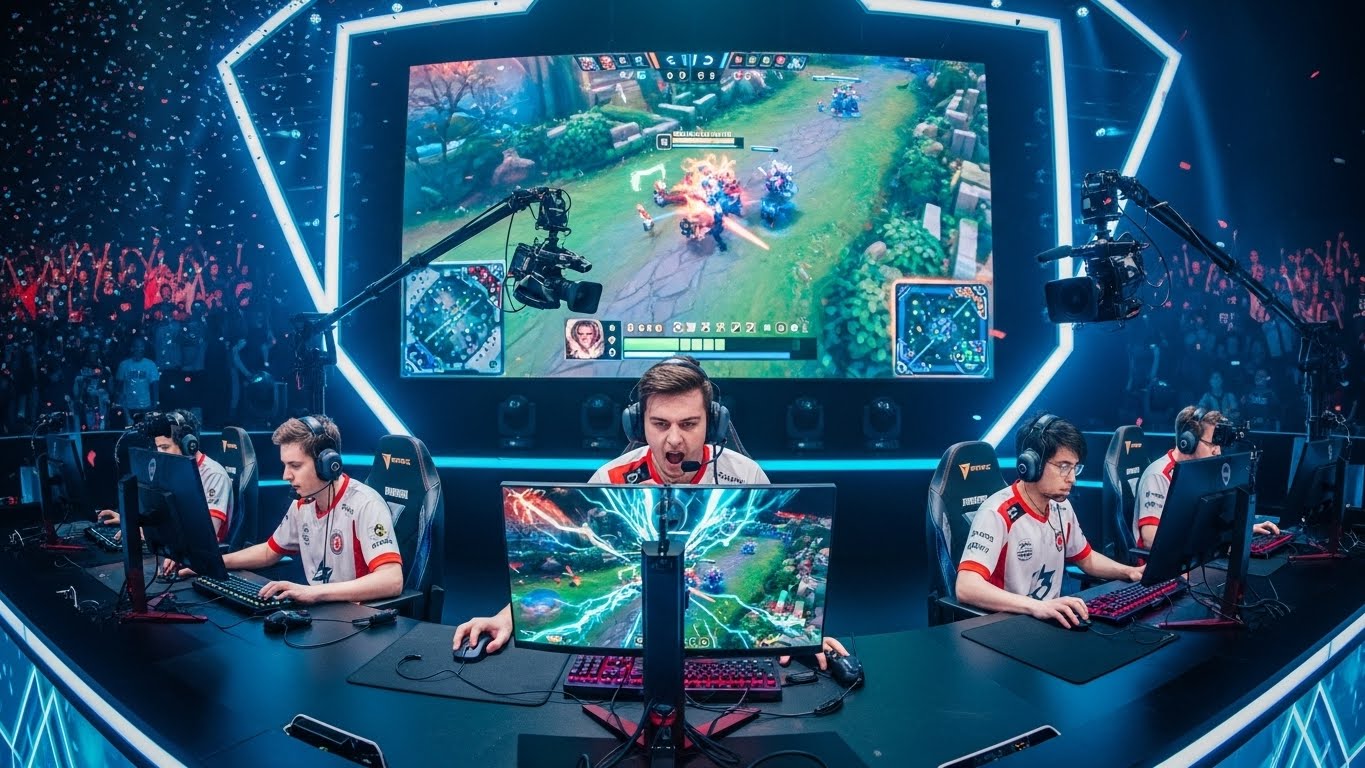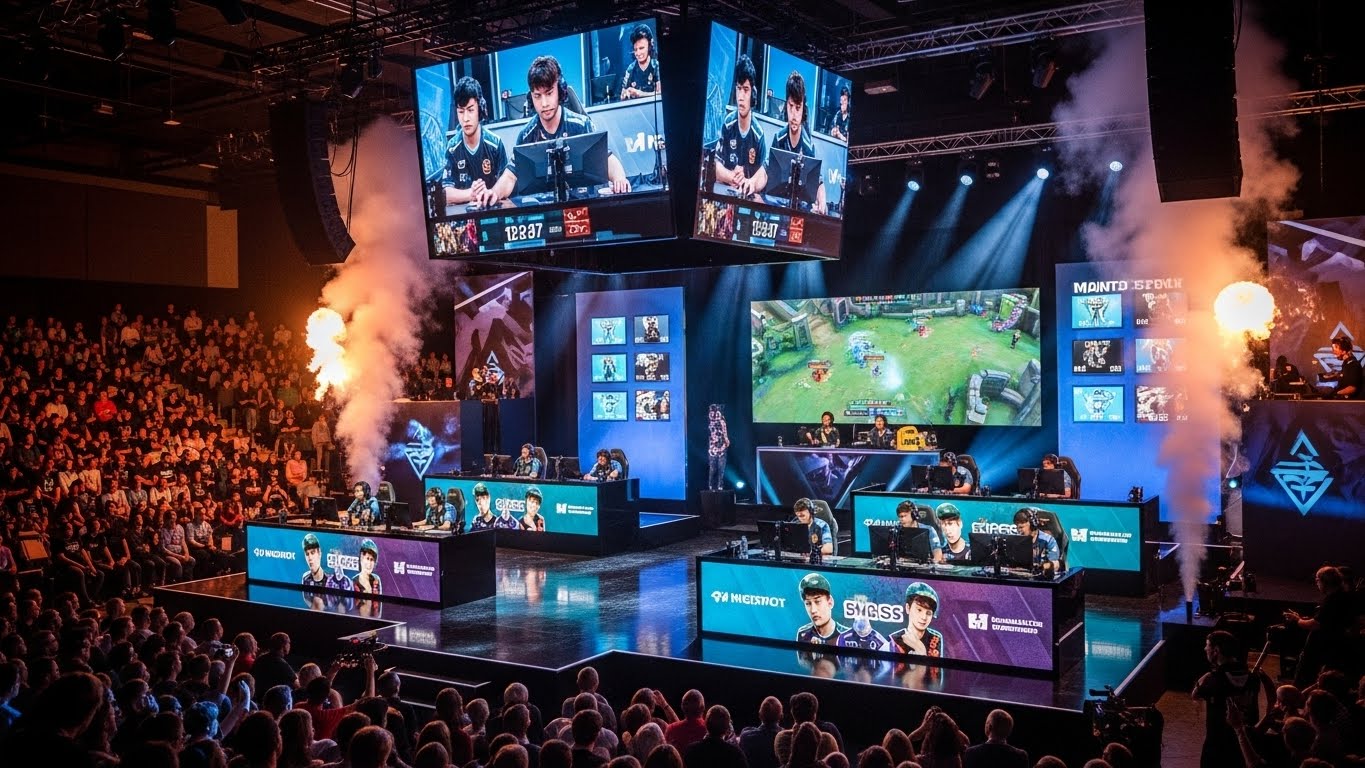Introduction
In the fast-paced world of esports, success isn’t solely determined by reflexes or mechanical skill. Mental agility, focus, memory, and decision-making play equally crucial roles. Esports athletes train their minds as rigorously as their bodies, using advanced tools designed to enhance their cognitive abilities. Cognitive training apps have become indispensable for both professional and aspiring esports players, offering scientifically backed exercises that sharpen the mind for peak performance. This blog explores the best apps for cognitive training in esports, how they improve mental performance, and why they’ve become essential tools in the competitive gaming landscape.
The Importance of Cognitive Training in Esports
Esports requires an incredible combination of concentration, reaction speed, multitasking, and adaptability. Games like League of Legends, Valorant, Counter-Strike 2, and Dota 2 demand split-second decisions under immense pressure. Players must analyze opponents, manage resources, and communicate with teammates simultaneously.
Cognitive training helps improve these vital skills through structured exercises that strengthen the brain’s capacity to process information quickly and efficiently. It targets functions such as:
- Attention control: Maintaining focus during long tournaments.
- Working memory: Remembering enemy positions, cooldowns, and strategies.
- Processing speed: Reacting swiftly to in-game stimuli.
- Decision-making: Choosing optimal strategies under stress.
- Hand-eye coordination: Translating thought into rapid physical action.
Esports organizations now include mental fitness programs as part of their training regimens. Just as physical athletes warm up their bodies, esports players warm up their minds — and cognitive apps are their primary tools.
What Makes a Good Cognitive Training App
Before exploring the best options, it’s essential to understand what separates an average brain-training app from a truly effective one for esports. A good cognitive app for competitive gaming should:
- Be backed by neuroscience: Exercises should target specific brain functions with proven scientific benefits.
- Offer measurable progress: Players should be able to track improvements in speed, accuracy, and attention.
- Include game-like interfaces: Engaging visuals and challenges maintain motivation during regular use.
- Support personalized training: Adaptive difficulty ensures the user is always challenged at the right level.
- Provide performance feedback: Data analytics and reports help players understand their mental strengths and weaknesses.
With these factors in mind, let’s look at the top cognitive training apps transforming how esports players sharpen their minds.
1. Lumosity
Overview:
Lumosity is one of the most popular and scientifically developed brain-training apps in the world. It’s based on cognitive psychology and neuroscience, designed to enhance attention, flexibility, memory, and problem-solving — all critical for esports athletes.
Features:
- Personalized daily training sessions
- Over 40 mini-games targeting different cognitive skills
- Progress tracking through detailed analytics
- Adaptive difficulty based on performance
Why Esports Players Use It:
Lumosity helps gamers stay sharp and manage mental fatigue during extended play sessions. Its focus on short, intense exercises mirrors the mental demands of esports competitions, making it perfect for pre-match warm-ups or daily training routines.
2. Elevate
Overview:
Elevate takes a holistic approach to mental training by targeting focus, comprehension, processing speed, and mental math. The app is sleek, competitive, and ideal for esports players who thrive on measurable progress.
Features:
- Adaptive challenges that increase in difficulty
- Personalized workout schedules
- Performance insights with data-driven graphs
- Over 40 interactive games
Why Esports Players Use It:
Elevate’s focus and processing games are excellent for training mental precision — a vital trait in fast-paced titles like Valorant or Apex Legends. Players benefit from its data feedback, helping them identify cognitive patterns that affect their gameplay.
3. BrainHQ
Overview:
Developed by neuroscientists at Posit Science, BrainHQ offers a professional-grade cognitive training program trusted by researchers and athletes. It’s particularly effective for improving visual speed and accuracy — key components in esports where every millisecond matters.
Features:
- Neuroscience-based exercises with measurable results
- Real-time performance feedback
- Focus on visual clarity and reaction time
- Designed to improve real-world cognitive function
Why Esports Players Use It:
BrainHQ’s exercises have been shown to improve reaction times by measurable percentages, making it invaluable for shooters and action-based esports. It trains the brain to process visual information faster, helping players identify threats and respond instantly.
4. Peak
Overview:
Peak is a brain-training app that combines cognitive exercises with mindfulness practices. It’s known for its visually engaging design and its ability to balance intensity with relaxation — perfect for maintaining mental health alongside performance.
Features:
- Over 45 games across memory, focus, problem-solving, and mental agility
- “Coach” mode for personalized guidance
- Integration with Apple Health and performance tracking
- Includes relaxation and focus meditation tools
Why Esports Players Use It:
Peak is perfect for players who want a balance between stimulation and stress relief. The combination of cognitive challenges and mindfulness helps players improve concentration while managing tournament anxiety.
5. CogniFit
Overview:
CogniFit is a powerful cognitive assessment and training platform used by professionals in sports, medicine, and education. It offers detailed insights into cognitive performance and personalized training modules designed by neuroscientists.
Features:
- Professional-grade cognitive assessments
- 40+ brain games across multiple mental categories
- Comparative performance reports
- Multiplayer training for team use
Why Esports Players Use It:
CogniFit allows players and coaches to identify mental strengths and weaknesses accurately. It’s especially valuable for esports teams that want to tailor cognitive training to specific roles — for example, enhancing a support player’s situational awareness or a sniper’s reaction time.
6. NeuroNation
Overview:
NeuroNation is a cognitive training app developed with input from psychologists and neuroscientists. It offers personalized exercises for improving memory, logic, and attention span.
Features:
- Tailored workouts based on individual performance
- Scientifically validated exercises
- Daily challenges and long-term progress tracking
- Competitive leaderboards for motivation
Why Esports Players Use It:
NeuroNation’s memory and logic challenges help strategy-based gamers, such as Dota 2 or StarCraft II players, stay mentally sharp during complex strategic decisions. The app’s progressive difficulty keeps players engaged as their skills evolve.
7. Focus@Will
Overview:
Unlike traditional cognitive training apps, Focus@Will enhances brain performance through sound. It uses neuroscience-based music channels to increase concentration and reduce distractions, making it perfect for long gaming sessions or mental warm-ups.
Features:
- Music scientifically designed to improve focus
- Adjustable energy levels for different tasks
- Timer-based sessions
- User analytics for tracking productivity
Why Esports Players Use It:
Many professional players use Focus@Will to maintain deep concentration during scrims or tournaments. It provides a mental environment conducive to flow state — the ideal mindset for consistent, high-level performance.
8. MindPal
Overview:
MindPal is a newer entry in the cognitive training space but has quickly gained popularity for its sleek interface and real-world performance tracking. It combines memory games, focus drills, and speed challenges.
Features:
- AI-driven personalization
- Short daily sessions for consistent progress
- Focus on multitasking and problem-solving
- Clear performance metrics
Why Esports Players Use It:
MindPal’s design emphasizes consistency and measurable improvement. For esports players juggling team schedules and personal practice, its quick yet effective sessions make mental training easy to incorporate daily.
9. Simple Habit and Calm (for Mindfulness Training)
Overview:
While not traditional brain-training apps, Simple Habit and Calm play an essential role in the mental preparation of esports athletes. They focus on mindfulness, relaxation, and stress control — all critical for tournament success.
Features:
- Guided meditation and breathing exercises
- Sleep and recovery programs
- Focus-enhancing sessions
- Progress tracking for mindfulness goals
Why Esports Players Use It:
High-stakes competition brings immense pressure. These apps help players regulate emotions, maintain composure under stress, and recover mentally after intense matches. Combining mindfulness with cognitive drills ensures balanced mental health.
How Cognitive Apps Complement Esports Training
Cognitive training apps are not replacements for in-game practice but powerful supplements. They prepare the mind for the high cognitive load of esports competition. Players who regularly engage in mental exercises often experience:
- Improved reaction time: Faster recognition and response to visual cues.
- Better multitasking: Managing multiple objectives and tracking multiple targets.
- Enhanced focus: Longer concentration during long matches.
- Reduced burnout: Balanced mental stimulation and relaxation.
- Sharper decision-making: More efficient judgment under pressure.
Many esports organizations now employ sports psychologists who integrate these apps into daily routines, combining mental conditioning with traditional scrims and drills.
Tips for Effective Cognitive Training
To get the most from cognitive training apps, esports players should follow structured routines rather than using them sporadically. Here are a few strategies:
- Consistency over duration: 10–15 minutes daily is better than long irregular sessions.
- Pair with physical wellness: Good sleep, nutrition, and hydration amplify results.
- Measure progress: Use app metrics to adjust training intensity.
- Combine tools: Mix cognitive, mindfulness, and focus-based apps for a balanced approach.
- Use before matches: Short warm-up sessions prime the brain for optimal reaction and decision-making.
The Future of Cognitive Training in Esports
The next generation of esports athletes will rely heavily on cognitive analytics. AI-driven mental coaches, VR-based training simulators, and biofeedback devices will soon merge with these apps to create complete mental-performance ecosystems. Teams may one day use real-time cognitive monitoring to adjust strategies during live matches.
As competition intensifies, cognitive training will become as important as mechanical skill. The brain, after all, is the ultimate controller — and training it may be the defining factor between victory and defeat.
Conclusion
Cognitive training has become a vital component of esports success. Apps like Lumosity, BrainHQ, Peak, and CogniFit provide scientifically validated tools for developing the mental precision needed in competitive gaming. Whether you’re a professional player or an aspiring competitor, investing time in cognitive development will elevate your performance, resilience, and confidence.
Esports is as much a mental battlefield as a physical one, and these apps equip players with the sharpness, focus, and adaptability needed to thrive in it. The mind that reacts faster, thinks deeper, and remains calmer will always have the upper hand — and cognitive training is the path to achieving that mastery.

